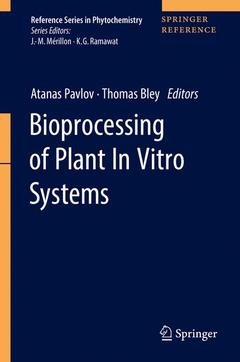Prof. Dr. Atanas Pavlov is Professor for Technology of bioactive substances at the University of Food Technologies, Plovdiv, Bulgaria, and Professor and Head of laboratory of the Laboratory of Applied Biotechnologies at The Stephan Angeloff Institute of Microbiology, Bulgarian Academy of Sciences. He has received his MSc in Biotechnology from the University of Food Technologies, Plovdiv, Bulgaria in 1992 and a PhD in Biotechnology from The Stephan Angeloff institute of Microbiology, Bulgarian Academy of Sciences in 1998. Prof. Pavlov worked as post-doctoral researcher at the Laboratoire de Biologie et Physiologie Végétales, University of Reims Champagne (France) and at the Institute of Food Technology and Bioprocess Engineering, TU Dresden, Germany (with support by a Marie Curie Host Fellowship). Afterwards he returned to Bulgaria to become Associate Professor in the Laboratory of Applied Biotechnologies, The Stephan Angeloff Institute of Microbiology, Bulgarian Academy of Sciences. Since 2010 he is full professor and heading the laboratory, additionally holding a professorship at Plovdiv University of Food Technologies.
Prof. Pavlov’s scientific interests include plant biotechnologies, bioprocess engineering, plant secondary metabolites-isolation, purification, and elucidation, and food biocativities. He has been and is co-editor, advisory board member and reviewer for numerous high impact scientific journals in the fields of biotechnology, microbiology, biochemistry, food chemistry and plant sciences.
Prof. Dr. Thomas Bley is the Chair of Bioprocess Engineering at the Dresden University of Technology (Germany). He studied mathematics in Dresden, graduating with a Diploma in 1975. After that he became a scientist at the Institute of Biotechnology (IBT) at the Academy of Science of the GDR in Leipzig, and received his PhD from the Academy in 1981. In 1990 Prof. Bley completed a habilitation in biotechnology at t




